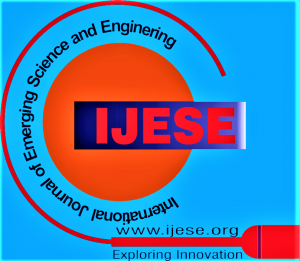![]()
An Analytical Study of AI and ML-Based Chatbots in Integrated Technical and Business Applications
Palagati Anusha1, Chokkamreddy Prakash2, Santhosh Kumar Balan3
1Palagati Anusha, Assistant Professor, Department of CSE, Guru Nanak Institute of Technology, Hyderabad (Telangana), India.
2Dr. Chokkamreddy Prakash, Assistant Professor, Department of MBA, School of Management Studies, Guru Nanak Institutions Technical, Hyderabad (Telangana), India.
3Dr. Santhosh Kumar Balan, Professor, Department of CSE, Guru Nanak Institute of Technology, Hyderabad (Telangana), India.
Manuscript received on 24 October 2025 | First Revised Manuscript received on 29 October 2025 | Second Revised Manuscript received on 02 November 2025 | Manuscript Accepted on 15 November 2025 | Manuscript published on 30 November 2025 | PP: 1-5 | Volume-13 Issue-12, November 2025 | Retrieval Number: 100.1/ijese.L261913121125 | DOI: 10.35940/ijese.L2619.13121125
Open Access | Editorial and Publishing Policies | Cite | Zenodo | OJS | Indexing and Abstracting
© The Authors. Blue Eyes Intelligence Engineering and Sciences Publication (BEIESP). This is an open access article under the CC-BY-NC-ND license (http://creativecommons.org/licenses/by-nc-nd/4.0/)
Abstract: This work examines how chatbots powered by Artificial Intelligence (AI) and Machine Learning (ML) improve efficiency, decision-making, and user interaction in integrated technical and business settings. The study aims to examine the two-sided effects of chatbots on operational performance and user satisfaction, and to identify the challenges that influence their successful implementation. The research design was descriptive-analytical, with 220 professionals and end-users selected and interviewed using structured questionnaires, and the data analysed using SPSS software (t-tests, ANOVA, correlation, and regression). These findings indicate that the chatbot integration has a significant positive effect on technical performance, as measured by response accuracy, system integration, and error handling, with all differences significant (p = 0.05). Measures of business processes, such as customer service, decision support, and operational efficiency, also show substantial improvements, with strong positive correlations between the technical metrics and user satisfaction. Nevertheless, the technical complexity, the cost of implementing it, employee adaptation, and data confidentiality issues were also found to impact the integration process’s effectiveness negatively. This paper finds that AI- and ML-based chatbots revolutionised the field of automation by connecting technical effectiveness with manager efficiency. Their application strategy can result in high-quality customer relationships and responsive operations, provided that organisations overcome integration barriers through continuous training, ethical regulation, and systems optimisation. This study is also relevant to current research on intelligent automation, as it provides a practical contribution to organisations seeking to implement chatbots responsibly and efficiently through socio-technical systems.
Keywords: AI Chatbots, Machine Learning, Technical Applications, Customer Service, User Satisfaction, System Integration.
Scope of the Article: Artificial Intelligence and Methods
